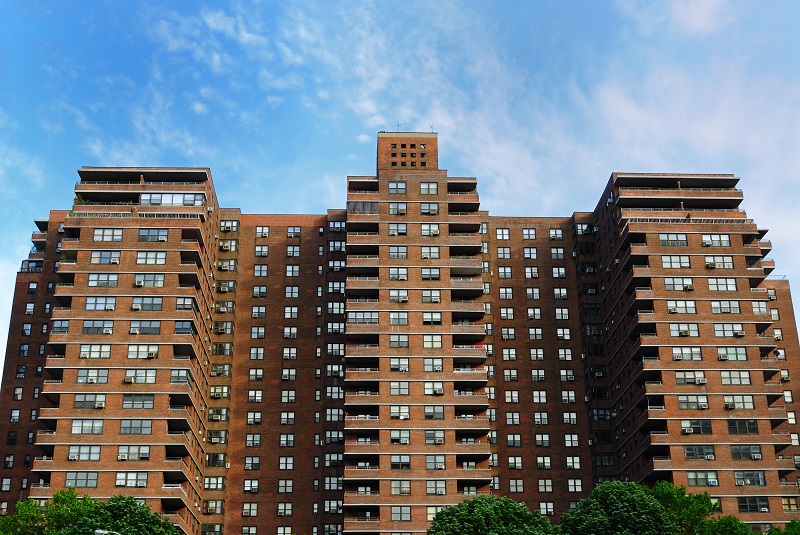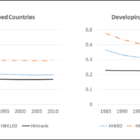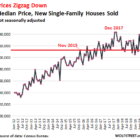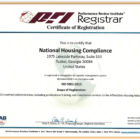Public Housing: The Hassles That Should Never Be

There are certain things that most of us take for granted will be routine in our lives: picking up the mail from our mailboxes; transitioning from outside of our homes to inside of our homes; the ability to open the windows to our homes on a sunny day; quiet surroundings at bedtime; healthy air to breathe.
But if you live in one of the thousands of public housing buildings across the country, none of these can be taken for granted as I found out by moving to public housing in September, 2012.
The purpose of public housing, also called low income or affordable housing is pretty basic: provide clean, safe, and affordable homes (usually apartments) to those unable to afford traditional housing costs. By providing affordable homes to the poor, municipalities combat not only homelessness, but encourage employment, enrollment in schools among poor children, and greatly reduce crime. That is the theory anyway. The reality, however, is very different.
Safety
Low income housing tends to be located in high crime areas. Far from being the safe havens we all aspire to when going home, drug use, murders, and burglaries plague these residential areas. I myself was in constant fear of my safety during the year I lived in a public housing neighborhood on the west side of Johnstown Pennsylvania – not only from the above, but also from the toxic air I breathed. As I wrote about in my article on third-hand smoke (smoke inhaled from a room other than the one where the smoker is located), all air is shared, especially in adjacent residences. What you do in your own home affects your neighbors – and can make them sick or even kill them. This means that if your neighbor consumes drugs — legal or illegal — your quality of life diminishes. Add in the constant flow of drug dealers and drug buyers on my block and the safety problem becomes evident. Since moving in September to a different public housing building in a different part of town, the local news has reported no less than ten murders within four blocks of the home I left just a few months ago.
Maintenance
Unlike traditional housing where landlords have a profit incentive to keep homes and public areas well maintained and in constant working order, public housing lacks this incentive. This means doing whatever is cheapest – like installing refurbished – not new – elevators into buildings at the cost of resident safety. Since moving into my current home on the fifteenth floor of my apartment building, the elevator has stopped – with me in it – TWICE in the very short time I have lived there – and is a REGULAR occurrence according to more than a dozen people living in my building.
By contrast, I only saw ONE breakdown of the elevators in my apartment building in northern New Jersey in the five years I lived there – a breakdown immediately addressed and that never once affected me, even living on the tenth floor of that building.
With unreliable elevators and a natural discomfort being in closed spaces, it is difficult for anyone in my building to actually leave our homes and the floors we live in/on. Every single ride risks a malfunction which could easily be addressed by simply installing brand new equipment and conducting the same routine care given to for-profit apartment buildings. Why the difference? Money. Proper care of elevators and other essentials (like furnaces) costs money, money not recouped entirely by rents.
In a time of budget cuts and political posturing against “entitlements,” providers of low-income housing simply do not have the money to provide the services everyone else takes for granted. When you realize that buildings like mine are specifically for the elderly, differently abled (including veterans), and the poor, the message is loud and clear about our value to our society. We are not worth, in the minds of others, the decency of working elevators let alone well maintained homes.
Access to mail, essential services
Dovetailing with maintenance issues is access to basic services – like the mail. Because I cannot know any time I get on the elevator that I will safely reach the ground and be able to return without incident, I cannot check my mail every day. Packages are not delivered to each apartment. Instead, residents must wait by the mail box banks for the letter carrier – sometimes for hours at a time – in order to receive a package. Likewise, receiving deliveries of any kind — like a pizza or other delivered food — becomes a real challenge. When you add in the difficulties leaving/returning the apartment, this cuts off residents from access to needed goods/services – like food, medicine, and clothing.
Windows
A very basic component to any home are windows to let in fresh air. However the screens on the windows in my apartment and those of my neighbors have gaps that insects – especially bees and wasps – readily penetrate. On a lower floor, replacing and repairing the screens would be fairly easy – but not fifteen stories up. This means the only way I can keep the bugs out (who wants wasps buzzing around in the living room or in your bedroom?) is by sealing my apartment, keeping all windows tightly locked. Should an insect penetrate that (and yes, some have), I cannot expect assistance from the building. When I tried once the answer was “well just kill the bug yourself.”
All of these areas are things most people take for granted. Yet people in affordable, public housing cannot take them for granted. Safety, access to the outside world, mail/package collection, and yes, windows are all basics to life that I feel no person, no matter how poor, should be denied unrestricted access to. Indeed it is a mark of shame on our society that anyone has to think about these things at all. Every single person has the right to live free and safe in homes that are truly safe from all hazards.
Next time you hear a politician talk about “entitlements” think about these things and recognize the human picture. Most people in public housing are decent and wonderful people. Huge numbers of them have served in the military or are elderly. Is this the life you want for your (older) family members, for yourself, for anyone?
It is time to stop blaming the poor for poverty and start investing again in people. We can and must do better than this! Sub-standard housing must become a thing of the past.
DISCLOSURE OF MATERIAL CONNECTION:
Resident in public housing apartment building



